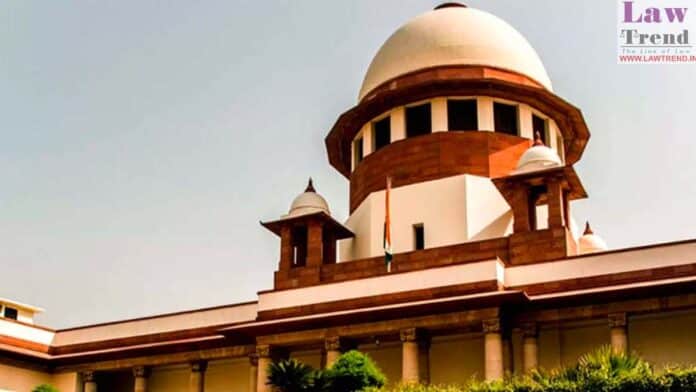An NGO on Monday expressed concern over the recent order passed by the Supreme Court on a recall application filed by the Centre against a verdict earlier delivered by the apex court which held an investigating agency cannot file charge sheet in court without completing a probe in order to deprive an accused of default bail.
In a statement, NGO Campaign for Judicial Accountability & Reforms (CJAR), referred to the April 26 verdict in the case of Ritu Chhabaria vs Union of India and said the judgement reiterated the by-now trite point of law that default bail under section 167 of the Code of Criminal Procedure (CrPC) is a fundamental right.
According to section 167 of the CrPC, an accused will be entitled to default bail if the investigating agency fails to file a charge sheet within 60 days from the date of remand. For certain category of offences, the stipulated period can be extended till 90 days.
A bench headed by Chief Justice D Y Chandrachud had, while hearing the recall application on May 1 said, “In the meantime, in the event that any other applications have been filed before any other court on the basis of the judgment of which recall is sought, they shall be presently deferred beyond May 4, 2023.”
It had ordered the matter to be listed on May 4 before a bench of three judges.
Later, on May 4, the matter came up for hearing before a three-judge bench headed by the CJI which noted in its order, “Permission to amend the recall application is granted. List the Special Leave Petitions on May 12, 2023 at 2 pm. The interim order passed by this court on May 1, 2023, shall continue until the next date of listing”.
In its statement, the NGO said the April 26 judgement in the Ritu Chhabaria case is “indisputably a welcome one”, lays down the correct law consistent with the fundamental rights chapter of the Constitution, and would be a “travesty if it were eventually overturned”.
It said recall application against a final judgment of the apex court is clearly not maintainable and even ought not to have been registered by the registry of the court.
“The only remedy for the Union of India if it was aggrieved by this final judgment, is filing a review application under Article 137 of the Constitution. Such a review application…, if the bench is still available (with none of the judges having retired etc), ought to be listed in chambers before that same bench that passed the judgment sought to be reviewed,” it said.
Also Read
“Even the mentioning of the so-called recall application, even assuming it is only a differently labeled review application, ought to have been made and ought to have been allowed to be made only before that same bench that delivered the judgment. Institutional integrity demands that any departure from this convention if at all ought to be done only by means of a reasoned order,” the CJAR said.
It said under the Constitutional scheme, the Chief Justice of India is the “master of roster and only a first among equals”.
“The Chief Justice’s bench is not an appellate court over the final judgments and orders of other benches of the Supreme Court. The orders passed by the Chief Justice’s bench in the recall application, with the first one upon being mentioned by the Solicitor-General, show that the Chief Justice’s bench has effectively condoned this brazen act of forum-shopping and bench-hunting by the Union,” it said.
“In an equally improper manner, it has acted like an appellate court, listing the recall application before a different bench; and directing all lower courts to defer default bail applications relying on the judgment in Ritu Chabbria (case),” the statement said.
The CJAR appealed to the benches, that passed the May 1 and May 4 orders in the recall application, to “suo motu and forthwith recall them – for, they clearly suffer from impropriety and lack of jurisdiction.”




